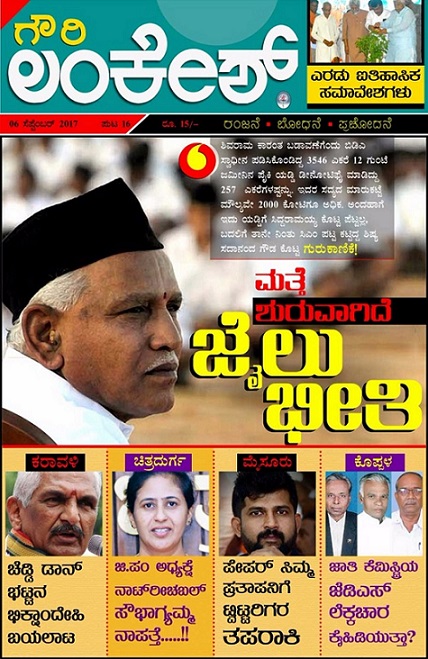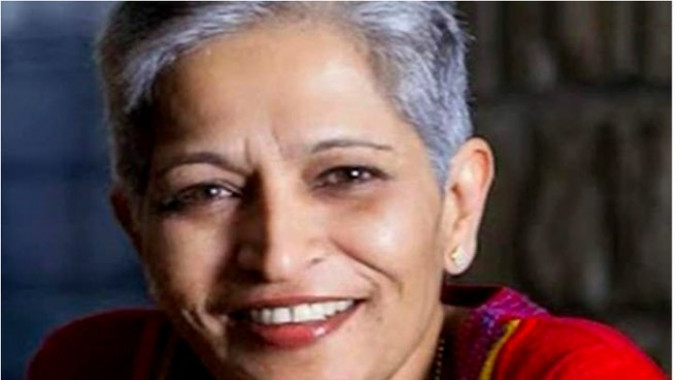Her journalism was activism
The last edition of the Gauri Lankesh Patrike is available on the web site as news of her murder last night is being reported and discussed in the media. Described as yet another killing of an intellectual after M.M. Kalburgi’s assassination on August 30, 2015, her murder is seen within the framework of her work as a journalist and also editor of the journal she had inherited from her father (although she had to recast it with her name prefixing the periodical owing to differences within the family). It may not be appropriate now to contextualize the reasons for the launch and subsequent success of the Lankesh Patrike that her father, a professor of English had started in July 1980. A paradigm shift owing to critical tensions within Kannada literary history had created a new brand of writers believing in “Bandaya” (revolt/resistance/protest) literature. Terms such as insurgent journalism and counter hegemonic journalism have been used to describe the journal and its practices. A full length feature film, Lankesh Patrike has been produced and directed by Indrajit, Gauri’s brother.
Gauri was in the forefront of taking up the cause of rehabilitation of the naxalites in some parts of Karnataka. She was a member of the State level committee (communal harmony forum) to negotiate and mainstream them. According to KL Ashok another member of the committee, Gauri’s death is not of a journalist, but the death of democracy and constitutional values. “She had raised her voice against communal violence with us and we know that all our lives are in danger. But we did not expect this.”

The home minister of Karnataka, after visiting the government hospital where the body was taken for post mortem has mentioned that there may be clues or some footage in the two CCTVs in the vicinity that the police are examining. Tributes through audio and video bytes were part of the media coverage including an interview with her colleague who said that she had signed off and asked him to leave for the day around 7 pm.
It was breaking news across channels. India Today’s Rajdeep Sardesai sought to play down attribution of specific motives by the persons and organizations she critiqued. Congress spokesperson was queried on the associated violence that was occurring in the state ruled by congress. The fact that the assassins in other cases were still free was also flagged. BJP spokesperson critiqued the jumping to conclusions by the Congress and blamed it on the poor law and order management in the State. The former police chief of the Western range in the State appreciated her liberal and understanding approach in dealing with extremism.
Gauri Lankesh’s murder will justifiably occupy centre stage in public and media discourse. She will be remembered as an intellectual who like her father integrated journalism as a practice to uphold basic values.
B P Sanjay is at the University of Hyderabad







